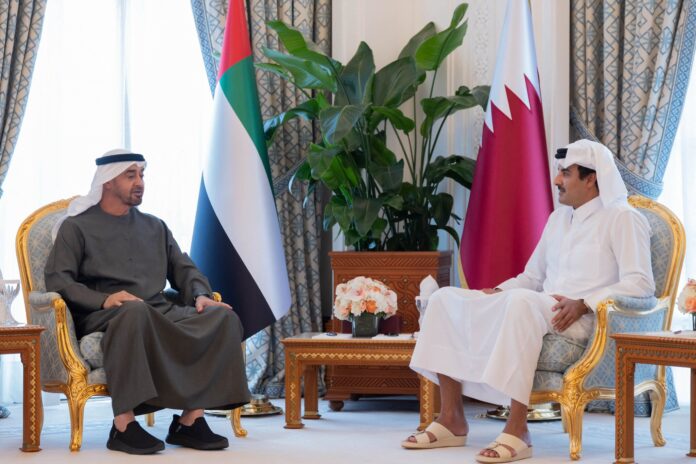Historic Gathering in Qatar
Doha, Qatar – Arab and Islamic leaders are meeting in Doha for a high-stakes emergency summit aimed at shaping a collective response to last week’s Israeli airstrike on the Qatari capital. The summit marks one of the most significant displays of regional unity in years, as leaders from across the Middle East and beyond attempt to address what many are calling an unprecedented escalation.
The two-day summit, organized jointly by the Organisation of Islamic Cooperation (OIC) and the Arab League, brings together representatives from nearly 80 nations. It follows a preparatory meeting of foreign ministers on Sunday, where participants agreed on the need for a firm, coordinated reaction to Israel’s September 9 strike that killed five Hamas members and a Qatari security officer.
Qatar Demands International Accountability

Qatar’s Prime Minister, Sheikh Mohammed bin Abdulrahman Al Thani, opened the ministerial session with a sharp condemnation of the strike, calling it a violation of international law and Qatari sovereignty. He criticized what he described as a global “double standard” in responding to Israeli actions and urged stronger measures to deter further aggression.
“The time is now to put an end to these double standards and hold Israel accountable for the crimes it has committed,” Sheikh Mohammed said, stressing that Doha would not tolerate attacks on its territory.
Regional Leaders Show Solidarity
Confirmed attendees include Iranian President Masoud Pezeshkian, Pakistani Prime Minister Shehbaz Sharif, and Malaysian Prime Minister Anwar Ibrahim. Iran’s security chief Ali Larijani has gone a step further, proposing the creation of a joint operations center among Muslim nations to coordinate responses to future Israeli actions.
In a rare show of unity, Gulf Arab states that have historically taken differing positions on Israel have rallied behind Qatar. Even the United Arab Emirates, which signed the Abraham Accords in 2020 to normalize relations with Israel, condemned the strike as “blatant and cowardly.” Several Gulf leaders traveled to Doha earlier this week in a public show of support.
U.S. Struggles to Balance Alliances
The incident has placed the United States in a difficult position as it seeks to maintain strong relations with both Israel and key Gulf partners. U.S. Secretary of State Marco Rubio arrived in Israel on Sunday for meetings with Prime Minister Benjamin Netanyahu to discuss the strike and its implications for regional stability.
President Donald Trump expressed his displeasure with Israel’s actions, writing on his Truth Social platform that bombing “inside Qatar, a sovereign nation and close ally of the United States,” undermined both American and Israeli goals. He assured Qatar’s leadership that such an incident would not be allowed to happen again.
Despite U.S. criticism, Netanyahu has stood by the strike, warning Qatar to either expel Hamas leaders or hand them over. “If you do not, we will,” Netanyahu said in remarks that have further heightened tensions ahead of the summit’s conclusion.
Draft Resolution Condemns Israeli Strike
According to diplomatic sources, the draft resolution being considered at the summit labels the attack a destabilizing act that threatens peace efforts across the region. It also rejects what it calls Israel’s “attempts to impose a new reality” in the Middle East. While the current text does not specify economic or political sanctions, officials say stronger measures could be added before the summit ends.
Qatar has played a central role in mediating ceasefire talks between Israel, Hamas, and other regional players since the Gaza conflict erupted after Hamas’s October 7, 2023 attack. The fact that the Israeli strike targeted Hamas negotiators while they were discussing a U.S.-backed ceasefire plan has raised doubts about the future of those efforts.
A Turning Point for Regional Diplomacy?
Arab League Secretary General Ahmed Aboul Gheit said the summit sends a clear signal that “Qatar is not alone and Arab and Islamic nations stand beside it.” Analysts say the meeting could mark a turning point in how the region deals with Israeli military actions, potentially paving the way for more coordinated diplomatic, economic, or even security measures in the future.
The outcome of this summit will be closely watched worldwide, as it could either deepen divisions or usher in a new era of collective Arab and Islamic diplomacy. Whether the gathering produces concrete actions or remains largely symbolic may determine the trajectory of Middle Eastern geopolitics in the months to come.
Sources: Al Jazeera


